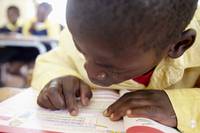JET responds to the 2021 PIRLS results
12 426 Grade 4 learners in 321 schools participated in the 2021 Progress in International Reading Literacy Study (PIRLS), the results of which were released yesterday.
While the international average achievement for 10-year-olds across all participating countries was 500, South African learners scored a significantly low 288.
According to the PIRLS benchmarks, learners who score below the benchmark of 400 points have not mastered the reading skills required to retrieve basic information from a text and answer simple questions, i.e. cannot read for meaning.
Only 19% of the Grade 4 children tested in South Africa can read for meaning, with a significant number achieving scores even too low to be estimated. To our credit, South Africa is the only Sub-Saharan country to participate. However, we may be compared with Brazil, which has a similar GDP to ours, but performs significantly better, with 61% of children reading for meaning.
Considering that literacy is the foundation on which all learning is built, JET joins other originations, educators and educational researchers in a call for the South African government and specifically the Department of Basic Education, and even more importantly the Provincial Departments of Education, to take urgent steps to remedy this situation. Most urgent in this regard is the implementation of the National Reading Plan.
In recent years, several research projects have established ways of assisting teachers to teach reading more effectively, providing them with a structured programme of daily lessons, high quality reading materials for learners, and classroom support. Important is assessment, at the classroom level. Since the cessation of the Annual National Assessment exercise, eight of the nine provinces have provided no measures for teachers, schools and parents to assess children’s progress.
At the same time, it is clear that many newly qualified teachers graduate without knowing how to teach reading. The universities need to look at themselves and provide more effective instruction to student teachers in reading pedagogy. Without educating our new teachers very much better in reading and maths, the current stasis will be perpetuated.

